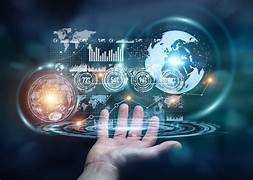The Medium is the Message: Technologies Controlling Societal Direction
December 3, 2024 2024-12-09 9:05
The Medium is the Message: Technologies Controlling Societal Direction
In today’s fast-paced digital world, technologies are not merely tools for communication but powerful forces shaping the way society functions, evolves, and interacts. The concept of “The Medium is the Message,” introduced by Marshall McLuhan, emphasizes that the medium through which information is transmitted plays a more significant role in influencing society than the content itself. This idea has become increasingly relevant as modern technologies like social media, artificial intelligence, and digital platforms redefine societal norms and cultural values.
The phrase “The Medium is the Message” implies that the characteristics of a medium—its format, structure, and method of interaction—impact how people think, behave, and relate to one another. In the context of today’s technologies, this means that platforms like Facebook, Instagram, or Twitter shape public discourse and influence behavior more than the actual messages being shared.
- Mediums shape perception: The way information is delivered impacts how people interpret and respond to it.
- Technology defines interactions: Tools like social media dictate how individuals and communities communicate.
- Content becomes secondary: The platform itself influences societal norms more than the specific content shared.
Technologies today are steering societal direction in profound ways. Social media algorithms, for instance, prioritize content based on engagement, often amplifying divisive or sensational material. This dynamic has shifted how people consume news, form opinions, and engage with their communities. Similarly, artificial intelligence and machine learning are influencing decision-making, from personalized advertisements to predictive policing, often raising ethical concerns about bias and privacy.
- Algorithms amplify influence: Social media prioritizes content designed to capture attention, reshaping public opinion.
- AI in decision-making: Artificial intelligence plays a growing role in personal, business, and governmental decisions.
- Ethical dilemmas: Bias and privacy concerns challenge the balance between technological efficiency and societal fairness.
One of the critical effects of technology as a medium is its ability to redefine human relationships. Digital platforms have transformed how people connect, often replacing face-to-face interactions with virtual ones. While this has broadened access to global communities, it has also raised questions about the authenticity and depth of these relationships.
- Virtual connections: Technology enables global communication but may weaken personal relationships.
- Impact on community: Online interactions redefine concepts of community and belonging.
- Shift in communication norms: Digital tools encourage brevity and immediacy, impacting how ideas are expressed.
The societal impact of technology extends to politics, economics, and education. Political campaigns now rely heavily on social media to mobilize voters and shape narratives, often blurring the lines between information and propaganda. In economics, digital marketplaces and gig platforms have redefined work, creating opportunities but also challenges like job insecurity and income inequality. Education has embraced technology through online learning platforms, making knowledge more accessible but raising concerns about the digital divide.
- Politics: Social media platforms play a critical role in shaping political narratives and voter engagement.
- Economics: Digital platforms create opportunities but also contribute to job insecurity and inequality.
- Education: Online learning expands access but highlights disparities in digital access and skills.
Despite the challenges, the technological medium offers opportunities for positive change. Technologies can amplify marginalized voices, democratize access to information, and foster innovation. By understanding the medium’s role in shaping societal dynamics, individuals and institutions can work toward harnessing its potential while mitigating its downsides.
- Empowering marginalized voices: Technology can give a platform to underrepresented groups.
- Democratizing information: Access to knowledge and resources becomes more equitable through digital tools.
- Driving innovation: The medium fosters creativity and new solutions for societal challenges.
As technology continues to evolve, the importance of critically analyzing its influence grows. Society must strike a balance between leveraging the benefits of technological mediums and addressing their unintended consequences. Whether through regulation, education, or responsible usage, understanding that “the medium is the message” empowers individuals to navigate the complexities of a digitally driven world.
For a deeper exploration of how technologies shape societal direction, watch this engaging video: https://youtu.be/4aL-wJTWudI
By: Daniela Febres
Related Posts
The Medium is the Message: Technologies Controlling Societal Direction
December 3, 2024 2024-12-09 9:05Popular Tags






























